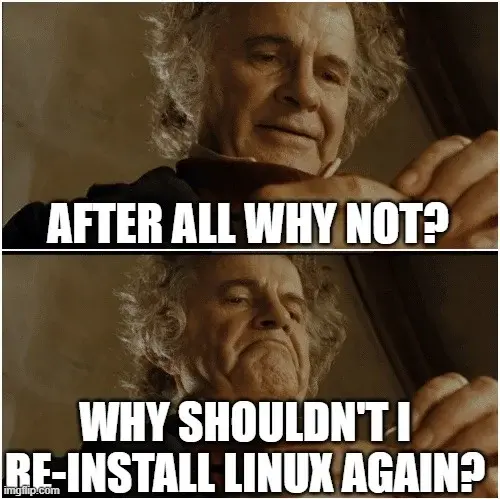this post was submitted on 24 Jun 2023
191 points (99.0% liked)
linuxmemes
20880 readers
6 users here now
I use Arch btw
Sister communities:
- LemmyMemes: Memes
- LemmyShitpost: Anything and everything goes.
- RISA: Star Trek memes and shitposts
Community rules
- Follow the site-wide rules and code of conduct
- Be civil
- Post Linux-related content
- No recent reposts
Please report posts and comments that break these rules!
founded 1 year ago
MODERATORS
you are viewing a single comment's thread
view the rest of the comments
view the rest of the comments

I'm on the verge of switching my gaming PC to Linux, the bloat of windows is becoming too much. I'm fairly PC literate but don't know anything about Linux or distros. It is intimidating to commit to a platform where I know so little. Does anyone have any tips regarding distros or learning the basics?
Look at ProtonDB to see what games you own will run on Linux.
Pop OS: is a good Ubuntu based distro.
The Nobara Project: is a Fedora based gaming distro.
Drauger OS: is another good gaming specific distro.
Each of these has their own pros and cons depending on your needs and hardware. Google is your best friends here. You will have issues with a game not working like you want. Again Google will be your best friend here.
My biggest suggestion is to embrace the challenges. Understand that in the last two years alone gaming on Linux has improved dramatically. Stay with it Linux is always maybe a better experience overall even if some of our games don't work right now.
With Redhat going kinda closed-source, will its derivatives like Fedora remain viable?
Don't remember how Canonical shit the bed, but I'm wary of using Ubuntu derivatives.
What would you recommend for a distro that keeps on top of security updates and is at least acceptable in terms of running games like AoE2 DE or The Outer Worlds?
As a Linux home user that uses windows for work, I recommend you start by debloating your windows. I prefer the Powershell script found here. There are multiple options for debloating windows on github, some also include tools to disable telemetry. I prefer more control over what telemetry gets disabled, and use O&O Shutup to manage that separately.
Then install a few Linux distros in a free hypervisor (Hyper-V/VirtualBox/VMware Player) on your lean windows. Note, Hyper-V is only avaliable on Pro versions of windows. Experiment until you find a Linux distro you are comfortable with. Build your confidence before you take that jump, and you'll be more likely to stick with it.
If you still find you may occasionally need windows, you can always dual boot, or run windows inside a hypervisor on Linux.